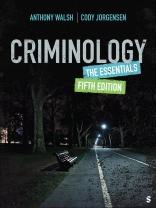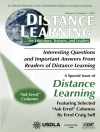In
Criminology: The Essentials, authors Anthony Walsh and Cody Jorgensen introduce students to major theoretical perspectives and criminology topics in a concise, easy-to-read format. This straightforward overview of the major subject areas in criminology thoroughly covers the most up-to-date advances in theory and research, while challenging students to consider the applications of these theories as well as their policy implications. Updates to the
Fifth Edition include new topics and developments in criminology, such as racial disparities in arrest rates, insights from the Big Five personality traits, cognitive behavioral therapy, gun violence and policy, and the opioid epidemic. It also offers detailed evaluations of theories to deepen student understanding and foster engaging classroom discussions.
قائمة المحتويات
Preface
1. An Overview of Crime and Criminology
What Is Criminology?
What Is Crime?
Criminality
An Excursion Through the American Criminal Justice System
A Short History of Criminology
The Role of Theory in Criminology
Ideology in Criminological Theory
Connecting Criminological Theory and Social Policy
2. Measuring Crime and Criminal Behavior
Categorizing and Measuring Crime and Criminal Behavior
Uniform Crime Reports: Counting Crime Officially
NIBRS: The “New and Improved” UCR
Crime Victimization Survey Data and Its Problems
3. Victimology: Exploring the Experience of Victimization
The Emergence of Victimology
Who Gets Victimized?
Victimization in the Workplace and at School
Human Trafficking
Sexual Assault of Children: Who Gets Victimized?
Domestic Violence Victimization
Hate Crimes
Identity Theft and Other Forms of Cybervictimization
Victimization Theories
Victimization And the Criminal Justice System
4. The Early Schools of Criminology
Introduction: Preclassical Notions of Crime and Criminals
The Classical School: The Calculating Criminal
Rise of Positivism
Deterrence and Choice: Pain Versus Gain
Evaluation of the Classical and Early Positivist Schools
Policy and Prevention: Implications of Deterrence Theories
5. Crime as Choice: Rationality, Emotion, and Criminal Behavior
Returning to Classic Assumptions of Human Nature
Rational Choice Theory
Routine Activities Theory
Cultural Criminology
Emotions and Their Functions
Policy and Prevention
6. Social Structural Theories
The Social Structural Tradition
The Chicago School of Ecology
The Anomie/Strain Tradition
Extending Anomie: Subcultural Theories
Street Gangs Today
Evaluation of the Anomie/strain and Subcultural Tradition
Policy and Prevention: Implications of Social Structural Theories
7. Social Process Theories
The Social Process Tradition
Differential Association Theory
Social Learning Theory
The Control Tradition
Labeling Theory: The Irony of Social Reaction
Policy and Prevention: Implications of Social Process Theories
8. Critical and Feminist Theories
The Conflict Perspective of Society
Karl Marx and Revolution
Conflict Theory: Max Weber and Power and Conflict
Other Critical Criminologies
Evaluation of Critical Theories
Feminist Criminology
Evaluation of Feminist Theories
Policy and Prevention
9. Psychosocial Theories: Individual Traits and Criminal Behavior
Introduction: The Two “Great Pillars of Psychology”
Intelligence
Temperament and Personality
Conscience and Arousal
Glen Walters’s Lifestyle Theory
The Antisocial Personalities
Evaluation of the Psychosocial Perspective
Policy and Prevention: Implications of Psychosocial Theories
10. Biosocial Approaches
The Biosocial Approach
Behavioral Genetics
The Neurosciences
Evolutionary Psychology
Other Biosocial Risk Factors for Criminality
Evaluation of the Biosocial Perspective
Policy and Prevention: Implications of Biosocial Theories
11. Developmental Theories: From Delinquency to Crime to Desistance
The Developmental Perspective: Continuity and Change
Risk and Protective Factors for Serious Delinquency
Major Developmental Theories
Evaluation of Developmental Theories
Policy and Prevention: Implications of Developmental Theories
12. Crimes of Violence
Violence in History
Murder
Mass, Spree, and Serial Murder
Serial Murder
Rape
Robbery
Aggravated Assault
Gun Violence
Theories of Violence
13. Terrorism
What Is Terrorism?
The Extent of Terrorism
Domestic Terrorism
Is there a Terrorist Personality?
Theories of Terrorism
Law Enforcement Response and Government Policy
14. Property Crime
What Is a Property Offense?
Larceny-theft
Burglary
Motor Vehicle Theft
Arson
Crimes of Guile and Deceit: Embezzlement, Fraud, and Forgery/counterfeiting
15. Public Order Crime
What Are Public Order Crimes?
Alcohol and Crime
Illegal Drugs and Crime
Prostitution and Commercialized Vice
16. White-Collar Crime
The Concept of White-Collar Crime
Occupational Crime
Corporate Crime
Theories on the Causes of Corporate Crime
Law Enforcements Response to Corporate Crime
Cybercrime: Oh, What a Tangled World Wide Web We Weave!
The Silk Road: Amazon.com for Crooks, Creeps, and Crackheads
17. Organized Crime
What Is Organized Crime?
Political Corruption and Organized Crime
A Brief History of Organized Crime in the United States
Other Organized Crime Groups
Theories of Organized Crime
Law Enforcements Response to Organized Crime
Glossary
References
Index
About the Authors
عن المؤلف
Cody Jorgensen earned a Ph D in Criminology from the University of Texas at Dallas. His main areas of interest include biosocial criminology, policing and forensics, and attitudes and perceptions in crime and justice. He is currently an assistant professor in the criminal justice department at Boise State University and has taught classes on policing, biosocial criminology, criminological theory, statistics, and law and social control. In his spare time he can be found on the trails riding dirt bikes and mountain bikes or on the streets riding motorcycles.












